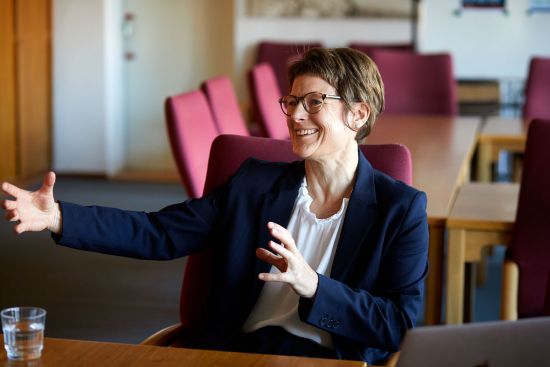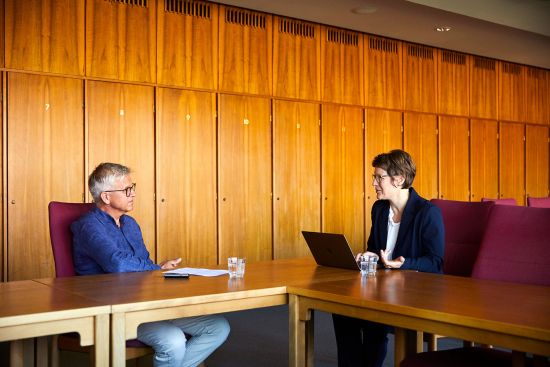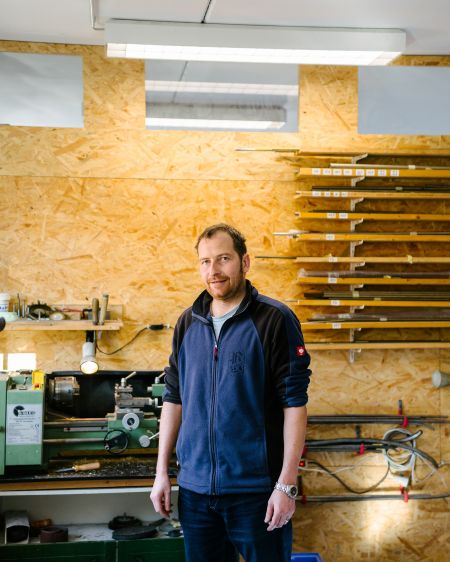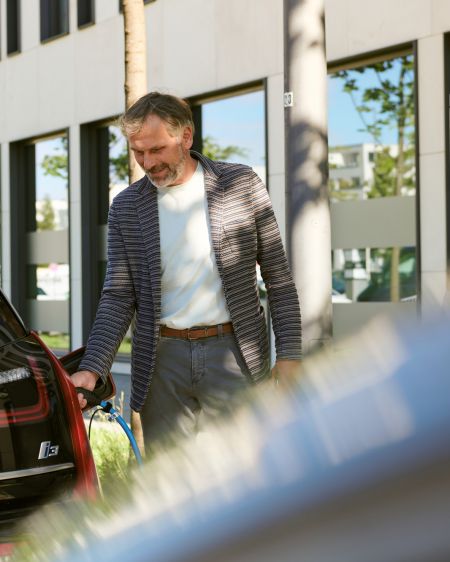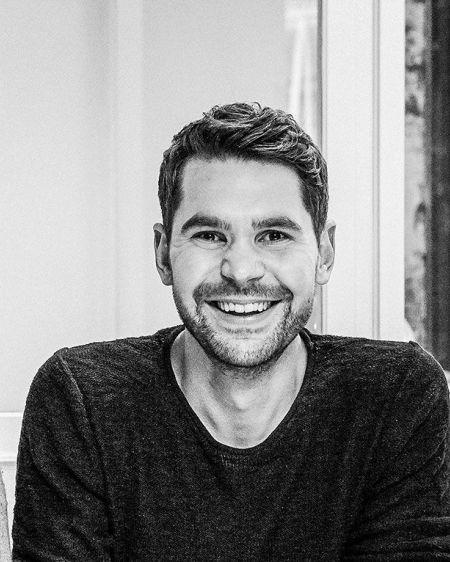"I am fascinated by this change"
An intact environment is a real location advantage for companies and municipalities in Bavaria. For the sustainability issue of the LfA Magazine, photographer Sebastian Arlt and editorial director Stefan Ruzas met the behavioral economist Veronika Grimm for an interview.
"What we are currently experiencing is already a reorientation towards sustainable management"
Veronika Grimm
However, Germany's economy has also experienced a historic slump in recent months, shrinking by 10.1 percent between April and June. Can we still afford the costs of the energy turnaround?
With the EU's goal of becoming climate-neutral by 2050, a completely different kind of pressure has arisen to drive the energy turnaround. In contrast to an 85 percent target, no area of defossilisation can be spared in the long term. This means that gaseous and liquid energy sources will play an important role. Without them, heavy vehicles, shipping and aviation as well as parts of industry cannot be defossilised. Interestingly, it is precisely in this area that a large industrial value-added potential for Germany and Europe lies dormant. German and especially Bavarian industry is excellently positioned to produce key components of a future hydrogen economy – from mechanical engineering to the automotive and automotive supply industries to the chemical industry. I therefore also see climate protection as a genuine industrial political opportunity.
The whole interview can be found in the LfA magazine issue autumn/winter 2020 on the subject of sustainability. The main contents of the magazine are also available online at lfa.de (only in German).
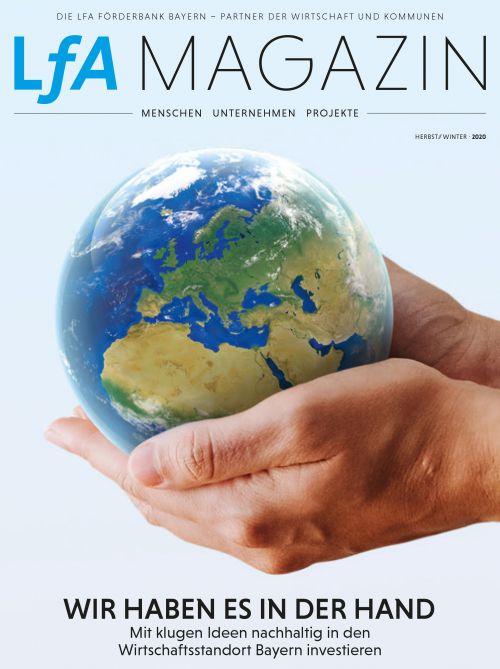
Since 2016 Storyboard produces the magazine of LfA Förderbank Bayern. Published twice a year the magazine informs about news and funding opportunities of the LfA. The main topic of the autumn/winter 2020 issue is sustainability.
